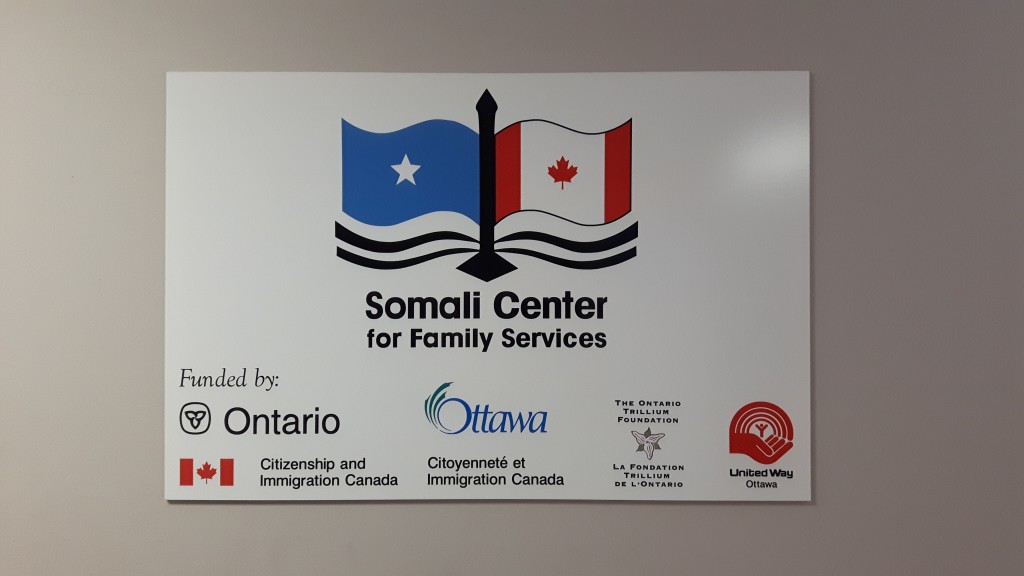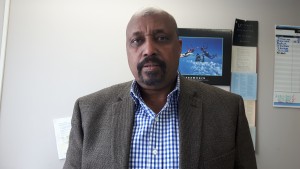
The trickle of Syrian refugees into Ottawa stirs memories for the Somali Centre for Family Services.
Twenty-five years ago, Somalis, in contrast, poured into Canada’s capital, fleeing a civil war that was devastating their country.
“Every given month, we had a few hundred Somalis coming into town,” said Farah Aw-Osman, one of the founders of the Somali Centre for Family Services.
Many of them were women with children. Some had lost their husbands to the war. Others had fled on the directive of husbands who stayed home to fight. These women had travelled across the world with nothing.
Individuals within an already existing Somali community in Ottawa were inundated with calls for help from just-arriving refugees. And so they sprung into action, helping the newcomers find housing, learn the language, register children at schools and build homes in the new country, all at no charge.
One evening in May 1991, these Somali-Canadians met at the Ottawa Mosque to turn their individual efforts into an organization they called the Somali Canadian Cultural Association.
“At the beginning, we struggled,” said Aw-Osman, one of the 12 people who was at the May 1991 meeting.
With a $20 monthly donation from each of 50 members of the Somali community, the association rented an office that was just a little bigger than a cubicle. All the services it offered were run by volunteers.
“Back then the unity of the community was very strong,” Aw-Osman said. “They [refugees] knew if they had any issues, this is the organization to come to.”
Less then four years after its creation, the centre changed its name to the Somali Centre for Family Services to reflect the range of services it wanted to provide; helping different age groups within the immigrant community to integrate into Canada. And so it included programs for youth and seniors.
After receiving its first grant of $25000 in 1993, the centre set a motion to expand. It now receives funding from the all levels of government and from various foundations within Ontario.
“We’ve become a hub for most of the immigrant community in the city of Ottawa,” said Abdirazak Karod, the executive director of the centre.

More than 20 people work at the Somali Centre for Family Services helping to settle newcomers into Ottawa, still at no charge. The centre has hired members of other ethnic groups within the immigrant community to help newcomers from more diverse backgrounds.
“The best person who can provide service and become successful at integration is someone who can understand your language and your culture,” Karod said.
The centre is now planning to hire Syrians who can provide services that Syrian refugees need to settle.
“You can tell they are a powerful organization within the Somali community and beyond,” said Valerie Assoi, a community developer working with the centre on a crime prevention project in Ottawa.
However, Assoi said members of the Somali community who are already settled don’t feel comfortable using the centre. These Somalis worry about sharing private information at a centre where they are well known and so they seek other alternatives.
But Assoi said the centre’s programs for youth and newcomers have been consistent, with many participating in them.
The centre says that more than 6,500 people use its services every year.
“They’re sensitive to the culture of the communities they are serving and can address specific needs of the Somali community,” said Luisa Veronis, a professor at the University of Ottawa who has worked with settlement agencies in Ottawa.
Although it’s could be challenging to serve more than one community at a time, Veronis said the experience encourages the coexistence of different cultures.
_______________
Documentation
This is the center’s present website. It contains background information about the center, the services it offers as well as contact information. I found it while browsing Factiva for story ideas. It was through the website that I realized the center was registered 25 years ago. It provided useful information for part of the story’s background. It was also through the website that I was able to reach the center and its staff for comment and interviews
2. http://www.scfsottawa.org/pdf/ann-report-2013-14.pdf
This is the center’s annual report from 2013. It provides more detail about the services offered by the centre. I got it through a google search. I was looking for a more recent one than the version on their website and this appears to be the most recent report available. It also provides relevant numbers about the number of people who use the center.
